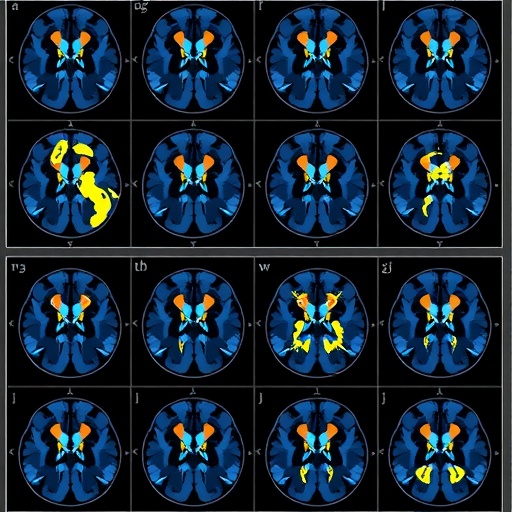In the rapidly evolving world of medical technology, machine learning (ML) continues to revolutionize predictive analytics, particularly in the realm of postoperative complications. A groundbreaking systematic review and meta-analysis published in BMC Psychiatry in 2025 brings into sharp focus the effectiveness of ML-based models in predicting postoperative delirium (POD), a common and severe complication following surgery. This work meticulously aggregates data from multiple studies, offering unprecedented insights into the diagnostic performance of various ML models.
Postoperative delirium is a complex neuropsychiatric syndrome characterized by acute cognitive disturbances following surgery. It significantly increases morbidity, mortality, and healthcare costs. Despite its prevalence and clinical consequences, early prediction remains challenging due to multifactorial contributors and the dynamic postoperative environment. The reviewed article addresses this gap by evaluating 69 distinct ML prediction models developed across 17 studies, encompassing a patient cohort exceeding 205,000 individuals with a reported POD incidence of 24.8%.
The analysis underscores the robust predictive power of ML models in this clinical context, with an overall mean area under the receiver operating characteristic curve (AUROC) of 0.83—reflecting high discriminative ability. This statistically significant finding is bolstered by pooled sensitivity and specificity values of 0.73 and 0.79, respectively, indicating a favorable balance between identifying true positives while minimizing false positives. Such performance metrics herald the promise of integrating these models into perioperative clinical workflows.
Diving deeper, the random forest algorithm emerges as the superior predictive tool, achieving the highest AUROC of 0.89. This ensemble learning method, leveraging multiple decision trees, excels at capturing complex nonlinear relationships among risk factors. Its effectiveness suggests a growing preference for more sophisticated, flexible modeling techniques in the domain of POD risk stratification, compared to traditional regression approaches.
Subgroup analyses reveal nuanced findings that could tailor clinical applications. Notably, models focusing on orthopedic surgeries demonstrate enhanced predictive accuracy with an AUROC of 0.88, indicating the importance of surgical context in delirium risk. The data also suggests improved model performance in younger patients under 60 years of age (AUROC 0.84), possibly reflecting differential risk profiles and etiological mechanisms across age groups.
Validation strategies prove crucial for robust model generalizability. Models with internal and external validation show better predictive reliability (AUROC 0.84) versus those relying solely on internal validation, emphasizing the necessity of rigorous testing across diverse patient populations and settings. Geographic factors also influence model efficacy, with Asian population-based models outperforming those developed for European and American cohorts (AUROC 0.85), which may reflect underlying genetic, environmental, or healthcare system-related variations.
Across the included studies, the researchers identify core covariates consistently linked to POD development. Advanced age, preoperative cognitive impairment, existing comorbidities, anemia, and hypoalbuminemia stand out as dominant predictive features. These factors harmonize with existing clinical knowledge but also underline the importance of integrating biochemical and cognitive parameters within ML frameworks to enhance predictive precision.
The comprehensive nature of this meta-analysis provides clinicians and researchers with a critical reference point when selecting or designing ML models for POD prediction. It delineates not only which algorithms hold the greatest prognostic promise but also stipulates the importance of extensive multi-center validation and inclusion of demographic and surgical diversity in model development.
Yet, the study highlights ongoing challenges. The heterogeneity in study design, inconsistent predictor variables, and varying definitions of delirium underscore the need for standardized protocols and reporting frameworks. Future investigations would benefit from longitudinal data, real-time monitoring integrations, and explainability-focused AI enhancements to facilitate clinical adoption and trust.
Ultimately, this research clearly illustrates that ML-based predictive models are not just theoretical constructs but practical tools with the potential to transform perioperative patient management. Proactive identification of patients at high risk for POD can facilitate timely interventions, personalized care pathways, and improved postoperative outcomes.
As the healthcare sector continues embracing digital transformation, integrating validated ML models into electronic health records and clinical decision-support systems could mark a pivotal shift towards predictive and precision medicine in surgery. The insights derived from this landmark meta-analysis serve as a scientific beacon, guiding such advancements.
In summation, postoperative delirium prediction stands on the cusp of a new era driven by advanced machine learning models. This systematic review and meta-analysis crystallizes the evidence, providing a rigorously analyzed foundation upon which future predictive systems can be built, refined, and ultimately deployed to save lives and elevate the standards of surgical care worldwide.
Subject of Research: Machine learning-based prediction models for postoperative delirium.
Article Title: Machine Learning-Based prediction models for postoperative delirium: a systematic review and Meta-Analysis.
Article References:
Tu, Y., Zhu, H., Zhang, X. et al. Machine Learning-Based prediction models for postoperative delirium: a systematic review and Meta-Analysis. BMC Psychiatry 25, 940 (2025). https://doi.org/10.1186/s12888-025-07401-2
Image Credits: AI Generated




